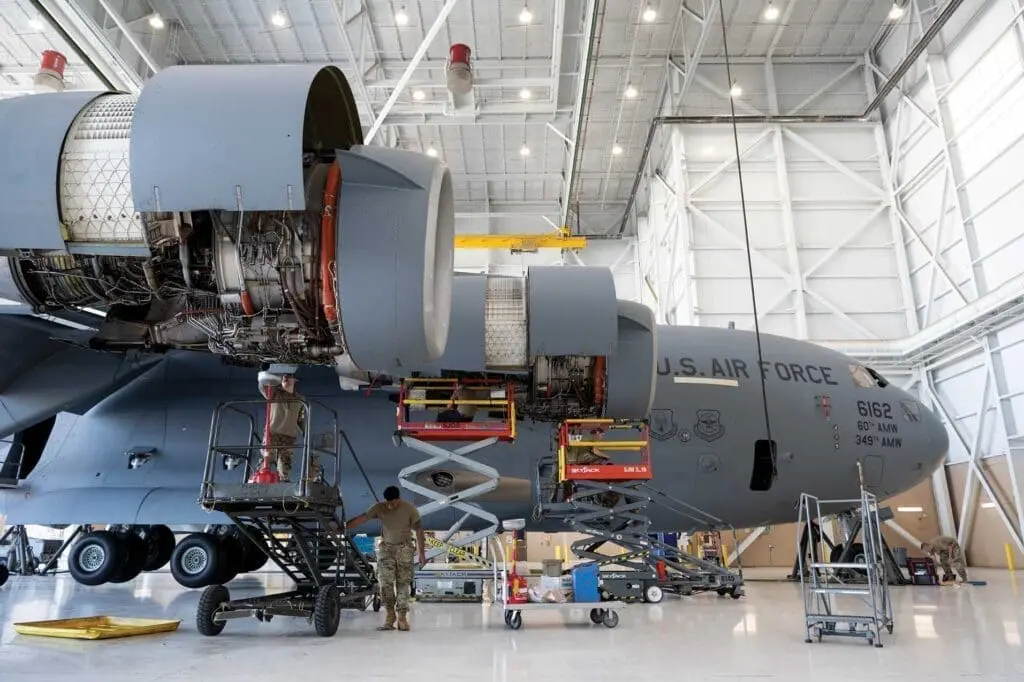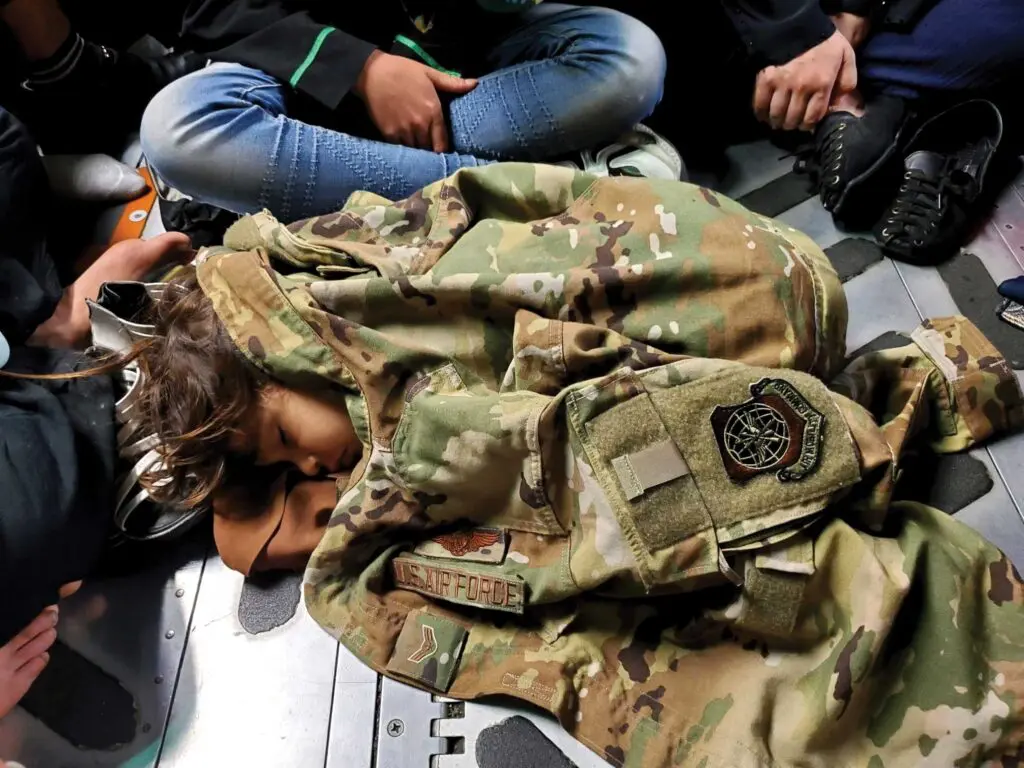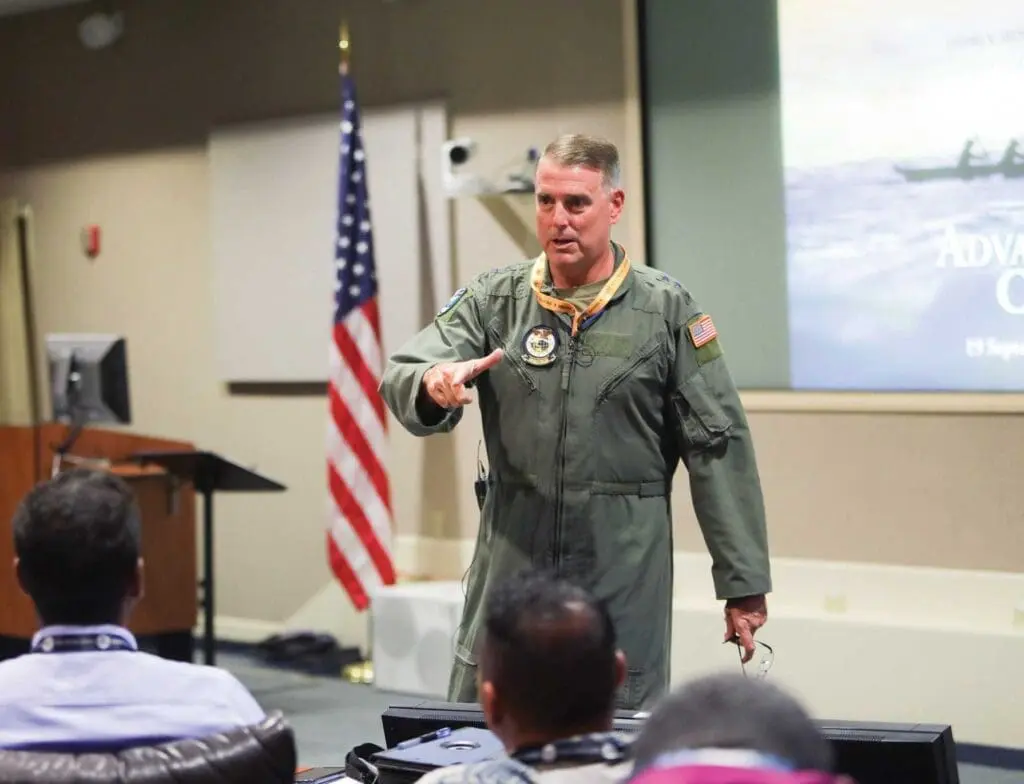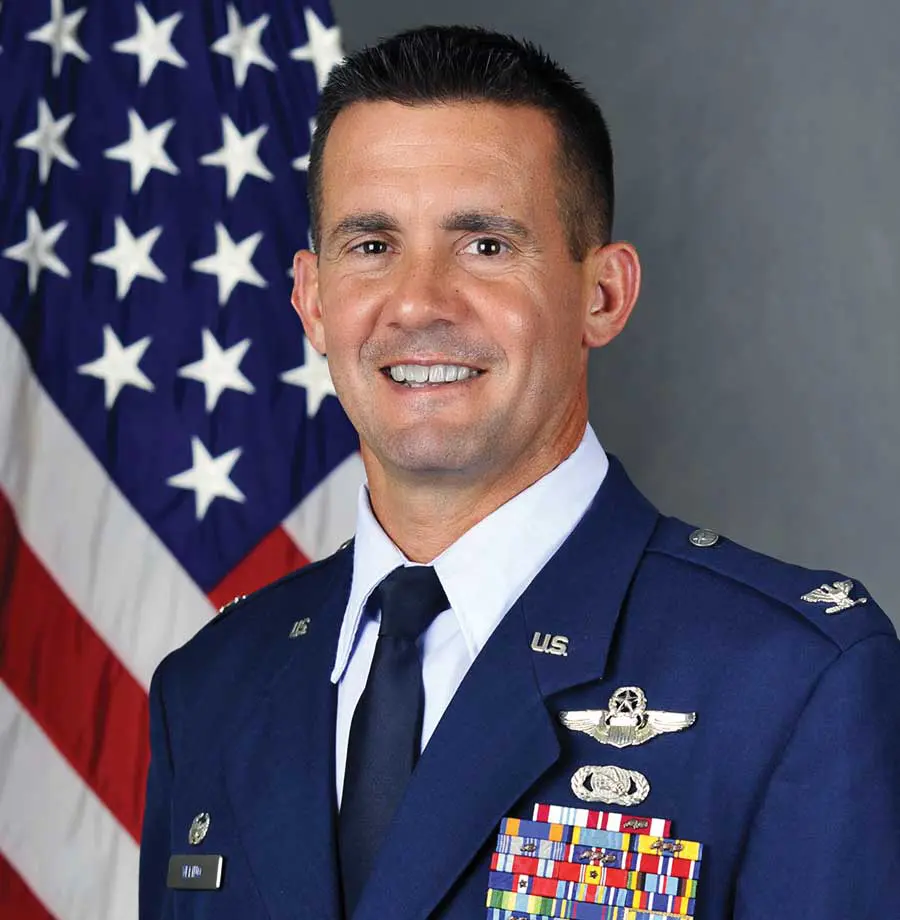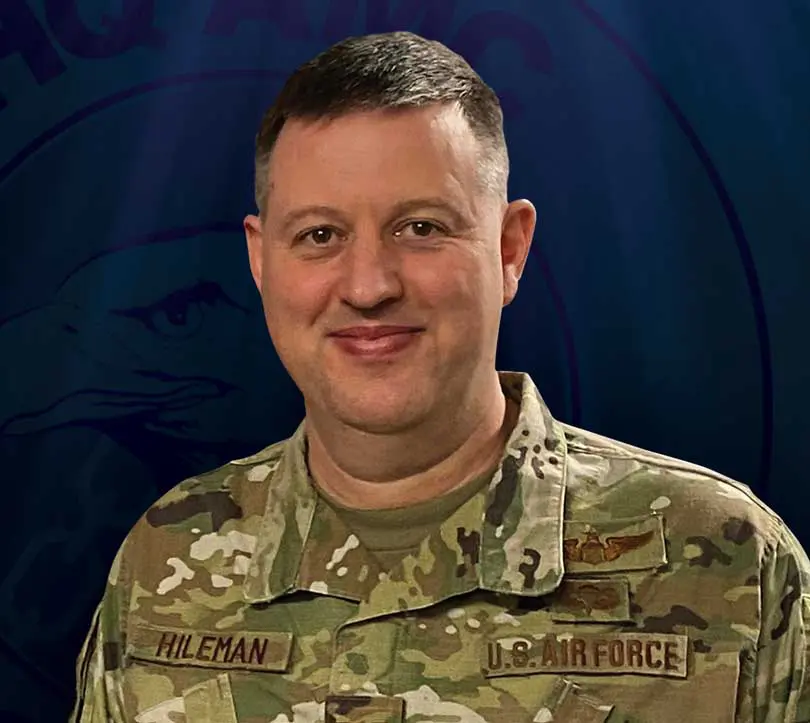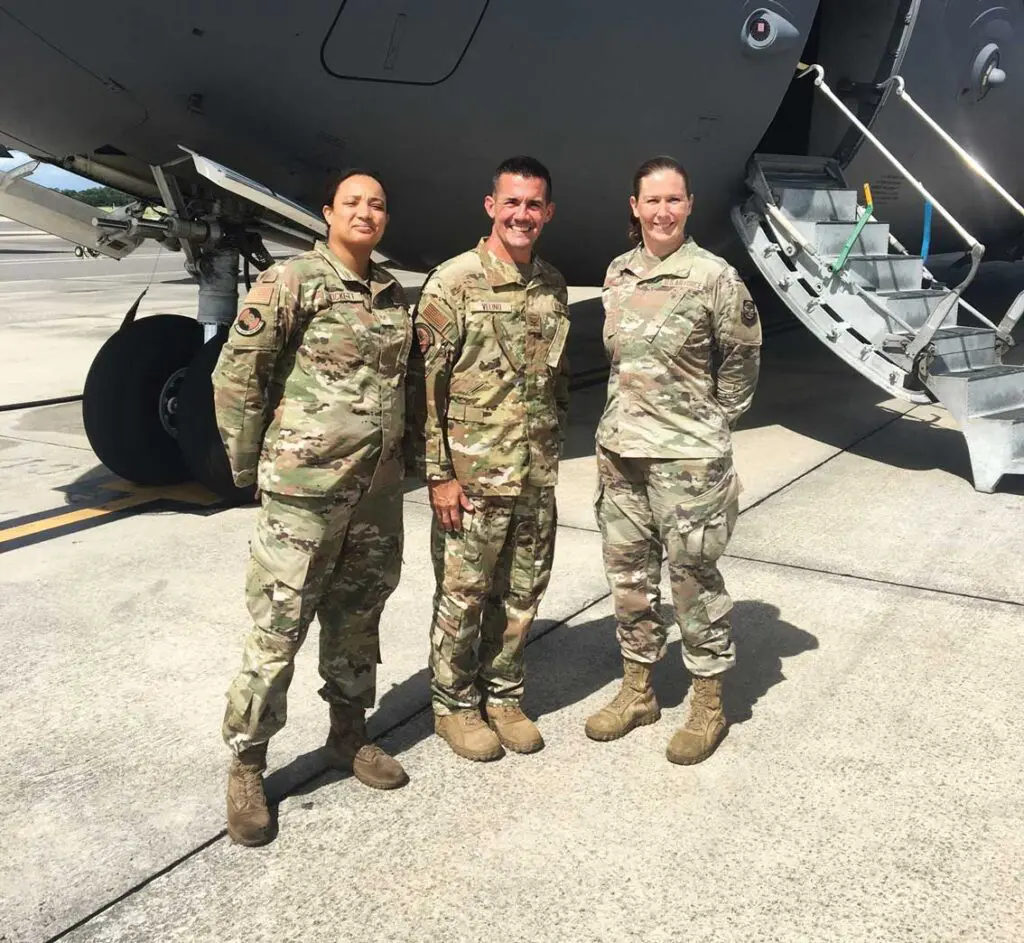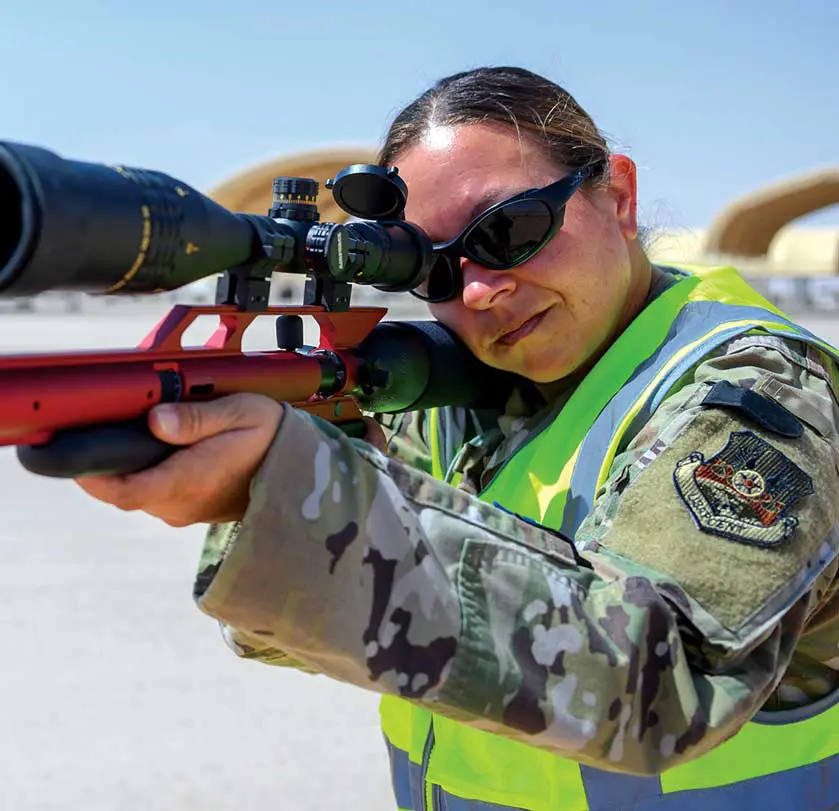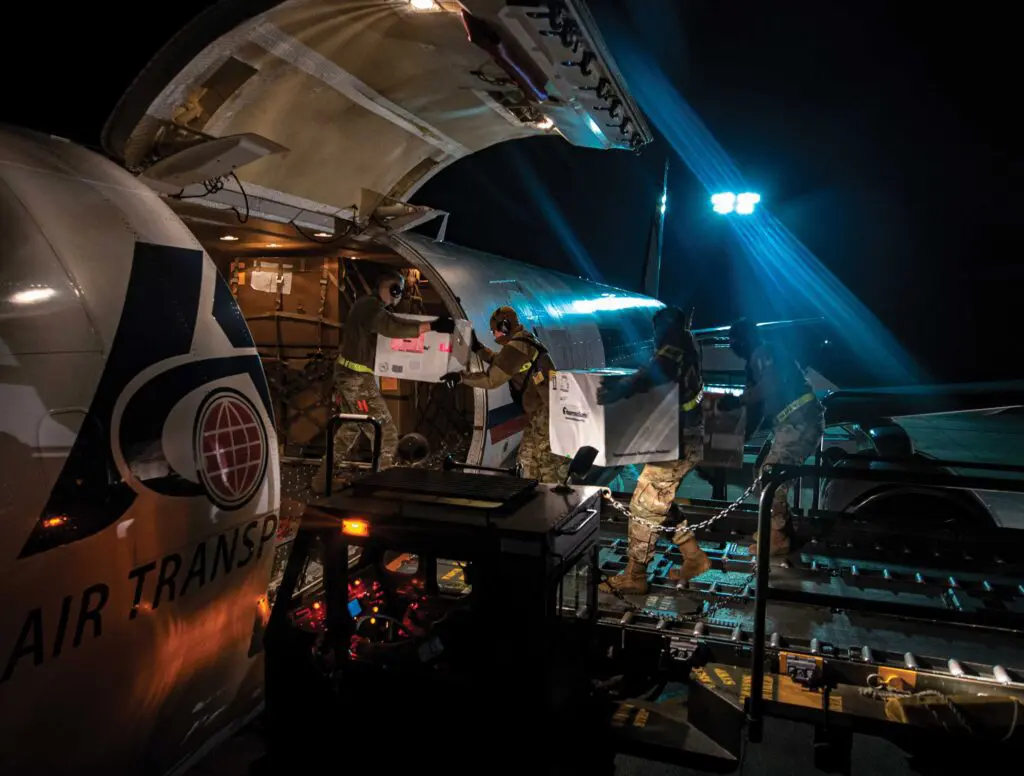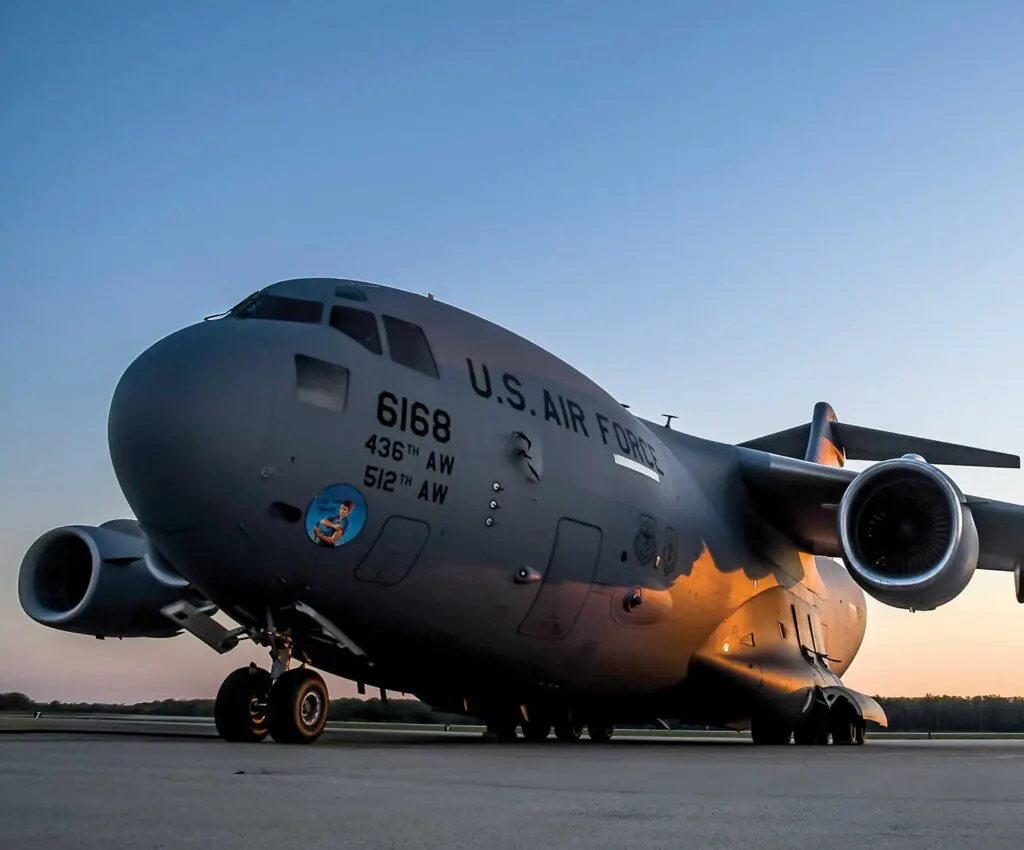The Mobility Forum The Mobility Forum
Assumption + Miscommunication = Aircraft Damage
By MR. LALO MAYNES, HQ AMC FLIGHT SAFETY
In a recent event on the flight line, maintenance personnel were prepping an aircraft for an engine run. The jet engine mechanic performed the Inlet and Exhaust (I&E) inspection on the number one engine. He purposefully left the inlet mat in the inlet so the oncoming 7-level trainer could train a 3-level on conducting the I&E inspection.
A DAY IN THE LIFE
By STAFF
An Afghan child sleeps on the cargo floor of a C-17 Globemaster III, kept warm by the uniform of a C-17 Loadmaster, A1C Nicolas Baron, during an evacuation fight from Kabul, Afghanistan, Aug. 15, 2021. Operating a feet of Air National Guard, Air Force Reserve, and active duty C-17s, Air Mobility Command, in support of the Department of Defense, moved forces into the theater to facilitate the safe departure and relocation of U.S. citizens, Special Immigration Visa recipients, and vulnerable Afghan populations from Afghanistan.
AMC Set to Greet New Commander This Fall
By Staff Writer
In July 2021, Lt Gen Mike Minihan was nominated and confirmed for promotion to general and assignment as the Commander of Air Mobility Command (AMC). He is set to succeed Gen Jacqueline Van Ovost, who has been nominated to serve as Commander of the United States Transportation Command.
AMC Safety Welcomes New Director
By Staff Writer
The Air Mobility Command Safety Directorate recently welcomed Col Charlie M. Velino as the new Director. Velino entered the Air Force through Officer Training School in March of 1995 and, following Basic Computer Officer School, was assigned duties in systems management and software engineering. In 1998, he was selected to attend pilot training and completed Undergraduate Pilot Training in April of 1999.
So Long, Fellow Mobility Airmen
By COL BRANDON HILEMAN
It has certainly been my honor and privilege to serve with such a phenomenal safety team the past few years. Fortified by outstanding leadership support and advocacy as well as the incredible efforts of safety professionals across the enterprise, the command has achieved a fantastic safety record and received numerous accolades in recognition of its accomplishments. AMC earned the Major General Benjamin D. Foulois Award for best flight safety program three out of the past four years and garnered the Secretary of the Air Force Safety Award for the best program in the Air Force an unprecedented three years in a row! These awards pale in comparison to the amazing mission mobility Airmen safely accomplish every day across the globe. Our business, however, requires steadfast focus on managing risk effectively and making sound decisions every single time.
AIR MOBILITY COMMAND WELL DONE AWARD
By Staff Writer
On April 9, 2021, as a C 17 taxied into its parking spot, a fire erupted in the left wheel well area. Fortunately for the crew onboard, SrA Rigel Lockett and A1C Augustine Williams from the 437th Airlift Wing, Joint Base Charleston, SC, noticed the fire, quickly retrieved a flightline fire extinguisher, and attempted to extinguish the fire. The duo thought it had been fully extinguished, but the fire, fed by hydraulic fluid, reignited. Determined to not let the blaze get out of control, Lockett and Williams then retrieved a second extinguisher and continued to fight the fire until the fire department arrived minutes later. Thanks to the actions of Lockett and Williams, the crew onboard egressed safely, and it is likely their efforts saved the aircraft from being a total loss.
The Flight Safety NCO: Your Safety Liaison
By MR. LALO MAYNES, HQ AMC FLIGHT SAFETY
Your wing FSNCO is a maintainer, usually from your wing, selected because of his or her knowledge and expertise with AFI 21-101, Aircraft and Equipment Maintenance Management, and the organizational structure of the maintenance complex. The FSNCO is assigned to the Flight Safety Division of the Wing Safety office, typically for two or three years. After completing the Aircraft Mishap Investigation Course and Aviation Safety Program Management course, the newly trained FSNCO will soon become key to continuity within the Flight Safety (SEF) office. He or she reports to, and works with, the Flight Safety Officers, who report to the Chief of Safety for the wing. In addition to conducting aviation mishap investigations, the FSNCO is an invaluable asset to each wing through historical mishap data and analytics, customized training and briefings, robust inspections, safety program oversight, proactive safety advocacy, and expeditionary capabilities for global impact.
Air Minimum Control Speed—The Ever-Present Assassin
By MR. WARREN THOMAS, HQ AMC C-130J MFOQA ANALYST
First, let me state that I am an old C-130 pilot, a biology major—and not an engineer of any kind. I retired from the USAF in 2011, but I am still hanging on to government employment as the senior C-130J Military Flight Operations Quality Assurance Analyst at Headquarters, Air Mobility Command. I was fortunate to fly four models of the C-130 during my USAF flying career. The order of flight was C-130E, C-130H, C-130E, C-130B, C-130E, and C-130J. My favorite aircraft was the B-model, but that is a story for another day.
The 618th Air Operations Center and Commercial Augmentation: Strategic Support
By MS. SOFIA SCHATZ, STAFF WRITER
The 618th Air Operations Center (AOC), located at Scott Air For
The Responsibility of Risk
By MSGT STEWART MITCHELL, WEAPONS SAFETY MANAGER, 92 ARW
In the weapons safety world there cannot be enough emphasis on the involvement of responsible commanders. Commanders at all levels may be responsible for some facet of weapons safety, whether it is an Additional Duty Weapons Safety Representative (ADWSR) program or a commander who owns the assets within a quantity distance (QD) arc. The job of the Weapons Safety Manager (WSM) is to understand and apply weapons safety principles to provide accurate guidance to responsible commanders. At the squadron level, the WSM also ensures ADWSRs are able to communicate the details of their own mission-specific requirements to their respective commanders.
ASAP 16302: High-Speed Approach Miscommunication
By MS. KATHY ALWARD, STAFF WRITER
Recently, C-17 Instructor Pilot Major Evin Negron, Dover Air Force Base, DE, learned things do not always go as planned when requesting a high-speed approach during routine training. No stranger to the Airman Safety Action Program (ASAP), he knew the miscommunication with air traffic control should be documented and shared with fellow aircrews.
AMC During 9/11/01: The 20th Anniversary of the Terrorist Attacks
By MR. GARY ELL, STAFF WRITER
On the morning of September 11, 2001, the Secretary of the Air Force, Public Affairs team from New York City (NYC) had arrived at McGuire Air Force Base (AFB) in New Jersey to have their official photos taken. It was an ordinary day, and I looked forward to networking with our friends from NYC. They used our services for fun assignments, such as when an Air Force officer threw out the first pitch at Yankee Stadium. The very least I could do in return was to provide them with exceptional studio photography for their official photos.

